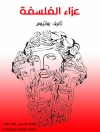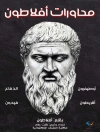The Ultimate Atlantis Collection (Six-Book Edition) offers a comprehensive exploration of the mythological and intellectual currents surrounding the lost city of Atlantis. Spanning diverse literary styles, from the philosophical dialogues of ancient Greece to speculative fiction, the anthology provides a multi-faceted exploration of themes such as utopia, catastrophe, and human morality. The collection is rich with speculative narratives and philosophical musings that challenge and expand the reader’s understanding of Atlantis, serving as both a historical inquiry and a timeless literary odyssey. The contributing authors, including iconic figures such as Plato and Francis Bacon, along with the imaginative narratives from more contemporary writers like Ignatius Donnelly, are pivotal in sculpting the enduring myth of Atlantis. This anthology aligns with movements of speculative thought and enlightenment ideals, highlighting the complex interplay of myth and reality across different epochs. Together, these varied voices offer a mosaic of interpretations that delve into Atlantis’ philosophical and cultural themes, prompting reflection upon humanity’s quest for knowledge and the eternal mysteries lying beneath the ocean’s depths. Readers are invited to traverse the anthology’s breadth of insights, gaining a robust appreciation of Atlantis’ enduring allure. Each work, whether philosophical treatise or speculative yarn, enriches the dialogue about Atlantis’ place within human consciousness. This collection is an indispensable guide for those searching for educational enrichment and a deeper understanding of the dialogue between diverse historical and literary perspectives, making the myth of Atlantis as intriguing today as it was millennia ago.
Sobre el autor
Plato (circa 427-347 BCE) stands as a pivotal figure in the development of Western philosophy. A student of Socrates and a teacher of Aristotle, Plato’s work lays the foundation for much of Western thought. Born into an aristocratic Athenian family, he was expected to enter politics, but the execution of Socrates in 399 BCE profoundly influenced him to the philosophical path. Plato’s dialogues, characterized by their dialectical style and Socratic questioning, explore various areas of philosophy, including ethics, metaphysics, epistemology, and political theory. One of the most significant works attributed to him is ‘The Republic, ‘ where through the character Socrates, he discusses justice, the ideal state, and the philosopher-king concept. Plato also founded the Academy in Athens, one of the earliest known organized schools in Western civilization, where education and philosophical inquiry were paramount. Though ‘The Ultimate Atlantis Collection (Six-Book Edition)’ is not a classical work but likely a modern compilation inspired by his famous dialogue ‘Timaeus, ‘ wherein the story of Atlantis is mentioned, it speaks to how Plato’s influence extends far beyond his time, inspiring countless interpretations and adaptations of his ideas. His contributions encapsulate a literary style that seamlessly merges narrative with profound philosophical insights.












